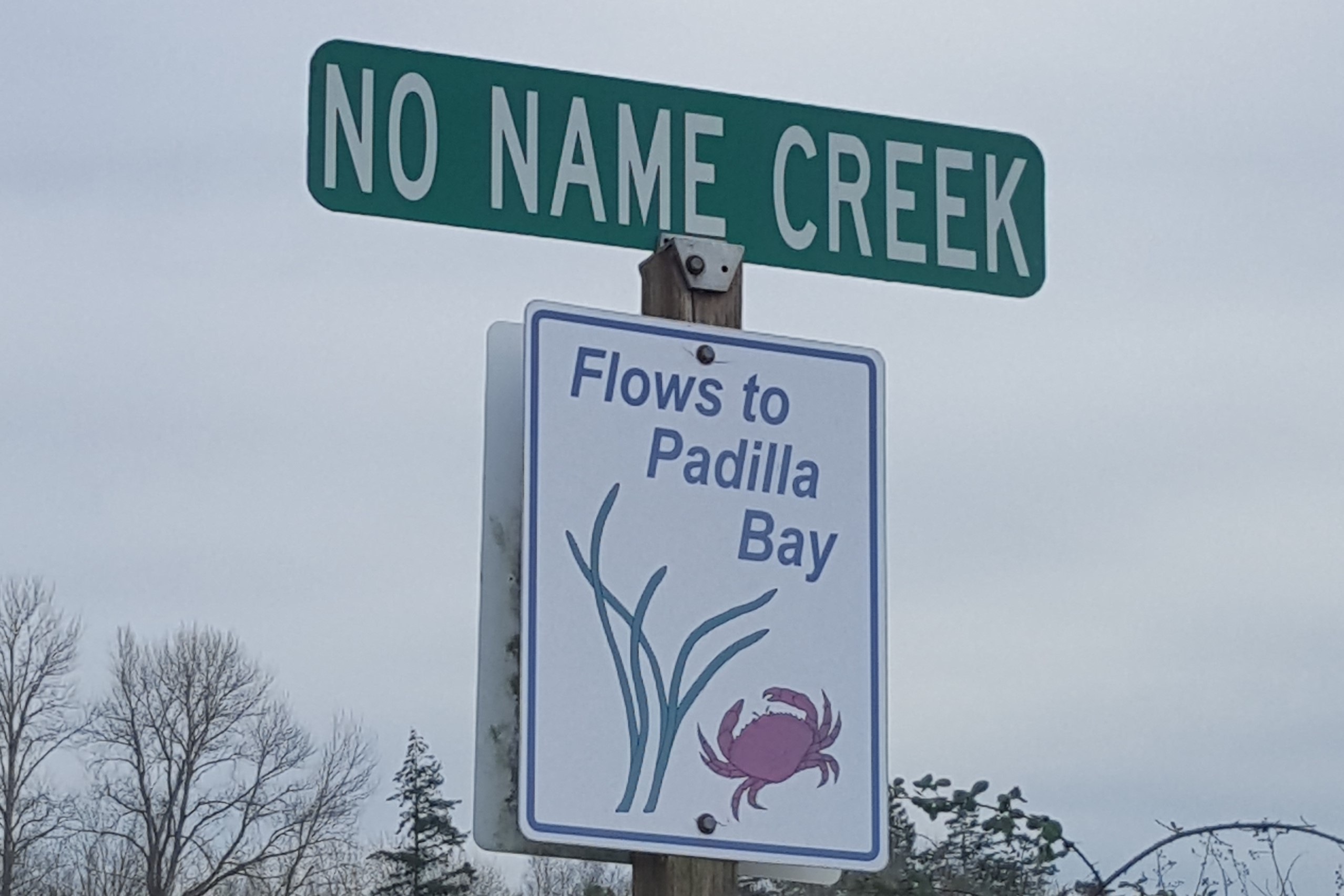Bacterial pollution in streams that flow into Skagit County’s Padilla Bay can be controlled by bolstering existing programs according to a Department of Ecology report and plan.
Ecology invites public comment on the document through Nov. 22, 2020. The department will host two online community meetings on Oct. 28, 2020, at 1 p.m. and 7 p.m. about the report and plan. Officials will explain the problems in the streams and answer questions at each session.
Bacteria washes into sloughs
Most of the streams entering Padilla Bay contain high levels of fecal coliform bacteria, which forms in the digestive systems of warm-blooded animals. The bacteria comes from diffuse, hard-to-trace sources – including pet and livestock waste, leaking sewers, failing septic systems and wildlife.
A 2016-2018 Ecology study identified high bacteria levels in Joe Leary, No Name, Big Indian and Little Indian sloughs. Stormwater runoff carries the bacteria into the streams and bay.
Waters with excessive fecal coliform levels can threaten human health, and can prompt state and local health departments to close or restrict shellfish harvesting and public swimming areas.
Padilla Bay is a National Estuarine Research Reserve, noted for its wide tideflats, covered with abundant eelgrass, which provides important habitat to juvenile salmon and other species. Ecology operates the Breazeale Interpretive Center near Bayview, which serves as home to the reserve’s research and educational programs.
Current efforts help, and should continue
The report and plan confirm that local and state government efforts have helped reduce bacteria levels in the streams, and that they should continue and even be increased.
Four agencies operate in the watershed under an Ecology municipal stormwater permit – Skagit County, Burlington, the Port of Skagit County and the Washington state Department of Transportation. They will focus their stormwater management programs to meet the plan’s target for parts of streams that receive discharges from their stormwater infrastructure.
Ecology, the Skagit Conservation District and state Department of Agriculture (WSDA) work with dairy farms and other livestock operations, efforts that are part of the plan. WSDA oversees a nutrient management program for dairy herd manure. The conservation district works with Ecology to help non-dairy livestock owners develop and carry out manure management plans.
Skagit County also offers assistance to homeowners and business with on-site septic systems. The county’s educational materials and low-interest loans help septic system owners keep up with maintenance and repairs.
Ecology’s plan encourages continued and expanded local programs to:
-
Provide low-interest homeowner septic system repair loans.
-
Promote more pet waste cleanup compliance.
-
Incorporate low-impact development into public and private projects.
- Develop farm plans with bacteria control practices for livestock owners and growers who apply manure as fertilizer.
Information and comments
-
Visit Ecology’s website for more background information and links for viewing or downloading the report and plan.
-
Use Ecology’s online comment app to make coments about the study and plan. The app allows you to write online, paste text, or attach files.
- Sign in to either of the Oct. 28 online community meetings at 1 p.m. or 7 p.m. Please register in advance. It’s recommended to sign in about 15 minutes early.
Technical questions should be directed to Scott Bohling, Water Quality Specialist, Dept. of Ecology, 3190 160th Ave. SE, Bellevue, 98008-5452; 425-229-5512; or scott.bohling@ecy.wa.gov.


